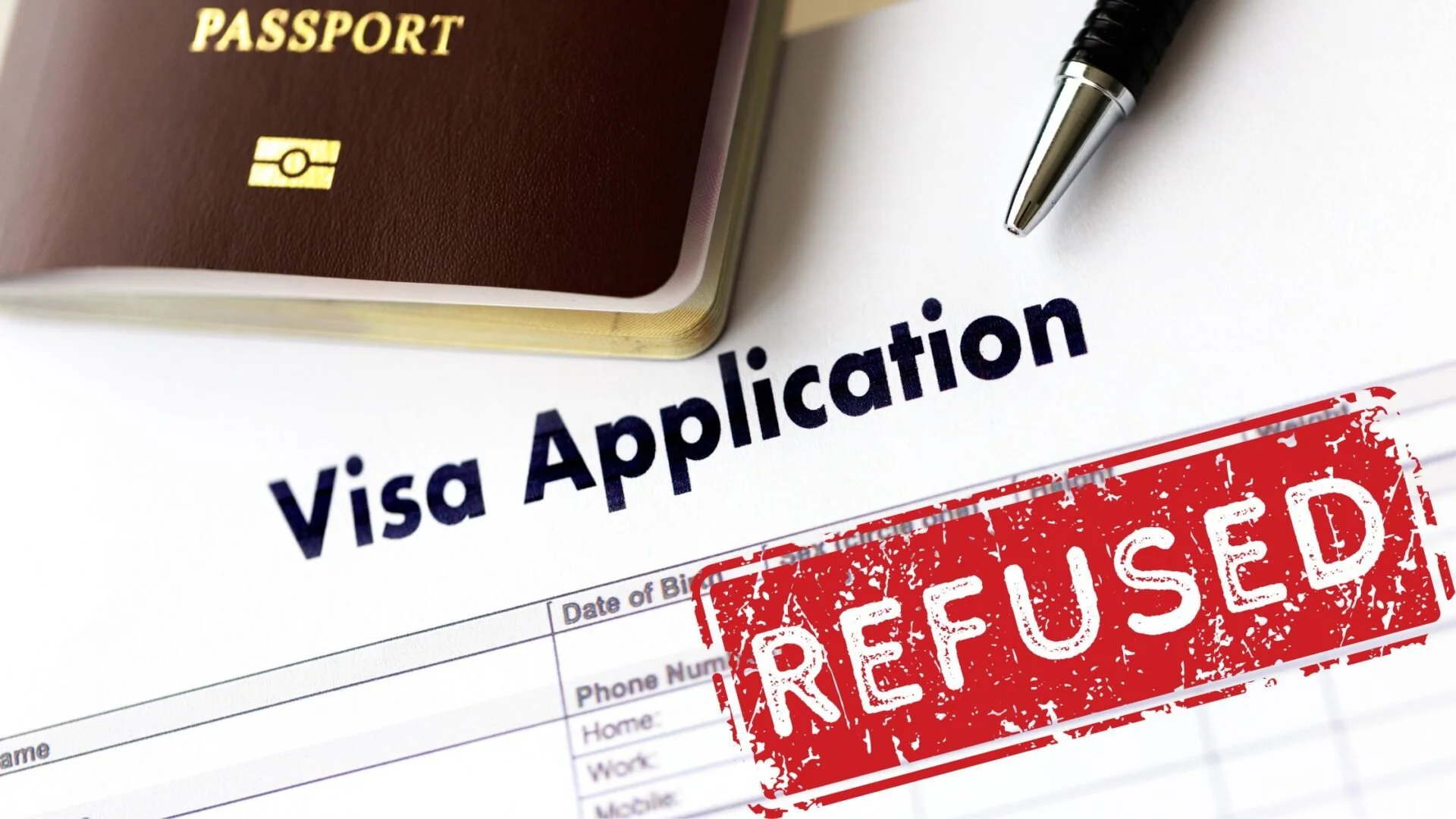Visa Cancellation, Refusals and Appeals
We offer comprehensive services for individuals facing visa refusals, cancellations, or seeking to lodge appeals in Australia. Our team provides expert guidance on reviewing the reasons for visa refusal or cancellation, assessing your eligibility for a review or appeal, and preparing strong submissions to the Tribunal or relevant immigration bodies. We assist in gathering supporting evidence, drafting legal arguments, and representing clients throughout the review or appeal process to improve the chances of a successful outcome. Whether your visa was refused due to character issues, incorrect documentation, or other grounds, we work diligently to protect your rights and help you navigate the complex immigration system.
-
A visa refusal occurs when the Department of Home Affairs (DHA) in Australia decides not to grant a visa application because the applicant does not meet one or more eligibility criteria required for that visa. This can be a stressful and disheartening experience, especially when plans for study, work, travel, or migration are affected. Understanding the reasons behind a refusal is crucial, as it determines the options available for appeal, review, or reapplication.
Common Reasons for Visa Refusal:
Insufficient or Incorrect Documentation
If the applicant fails to provide the necessary documents, or if the documents submitted are inaccurate, incomplete, or inconsistent, the application may be refused.Failure to Meet Visa Requirements
Each visa subclass has specific criteria. For example, student visa applicants must show genuine temporary entrant (GTE) intent, financial capacity, and enrollment in a registered course. If these are not adequately demonstrated, the visa can be refused.Health and Character Issues
Applicants must pass health and character checks. A history of certain illnesses, criminal convictions, or associations with individuals of concern can result in refusal.Financial Insufficiency
The inability to demonstrate adequate funds to support yourself during your stay in Australia can be grounds for refusal, particularly for student and visitor visas.Previous Visa Breaches or Unlawful Stay
A history of overstaying a visa, working unlawfully, or breaching visa conditions in Australia or elsewhere can negatively impact future applications.Concerns Over Genuine Intention
Immigration officers assess whether the applicant intends to comply with visa conditions. For example, if there is doubt that a visitor genuinely intends to return home or a student intends to study, the visa can be refused.How Professional Support Helps:
Having a migration professional review your case can significantly improve your chances of success in a reapplication or appeal. A registered migration agent or immigration lawyer can:
Analyze the reasons for refusal.
Advise you on your eligibility for appeal or reapplication.
Assist in collecting strong supporting evidence.
Represent you during appeal hearings or communications with the Department.
-
A visa cancellation occurs when the Department of Home Affairs (DHA) in Australia revokes or invalidates a previously granted visa, preventing the visa holder from lawfully remaining in Australia under the terms of that visa. This is a serious matter and can have significant consequences, including detention, removal from Australia, and restrictions on future visa applications. Understanding the grounds for cancellation and your legal rights is essential to responding effectively.
Common Reasons for Visa Cancellation
Breach of Visa Conditions
Visa holders must comply with specific conditions (e.g., work limitations, study requirements, health insurance). If these conditions are breached—such as working while on a tourist visa or dropping out of an enrolled course on a student visa—the visa can be canceled.Incorrect or False Information
Providing false or misleading information on a visa application, or omitting relevant facts, can lead to cancellation—even years after the visa was granted.Character Grounds (Section 501)
If a visa holder fails the character test, particularly due to criminal convictions, associations with criminal groups, or perceived threats to the Australian community, the Minister or a delegate may cancel the visa under Section 501 of the Migration Act 1958.Change in Circumstances
Some visas are granted based on specific personal or professional circumstances (such as an employer sponsorship or relationship with an Australian partner). If those circumstances change—such as leaving a job or ending a relationship—the visa may become invalid or be subject to cancellation.National Interest or Risk Factors
If the visa holder is believed to be a risk to national security or public health, or their presence in Australia is no longer considered to be in the national interest, the visa may be cancelled.Why Professional Support Matters
Visa cancellations are complex and time-sensitive. A registered migration agent or immigration lawyer can:
Assess your case and determine the best course of action.
Prepare a strong submission or appeal.
Represent you before the AAT or in court if necessary.
Minimize your risk of detention or deportation.
-
In Australia, visa appeals provide individuals with the opportunity to challenge a visa refusal or cancellation decisionmade by the Department of Home Affairs. Appeals are typically reviewed by the Administrative Appeals Tribunal (AAT), which has the authority to reassess and overturn decisions in certain cases. Understanding how the appeals process works is crucial for anyone facing a negative immigration outcome.
What is an Appeal?
An appeal is a formal process where a person who has had their visa refused or canceled requests a review of that decision. The AAT reviews the case independently and can affirm the decision, vary it, substitute a new decision, or send the matter back to the Department for reconsideration.
Who Can Appeal?
You may be eligible to appeal a decision if:
You are in Australia at the time of refusal or cancellation.
Your visa was refused or canceled while you held a visa or a bridging visa.
You have review rights outlined in your visa decision notice.
Why Seek Legal or Migration Help?
Appeals are complex and often high-stakes. Professional help can:
Clarify your eligibility and appeal prospects.
Prepare persuasive submissions and evidence.
Represent you at the hearing.
Increase your chances of a positive outcome.

